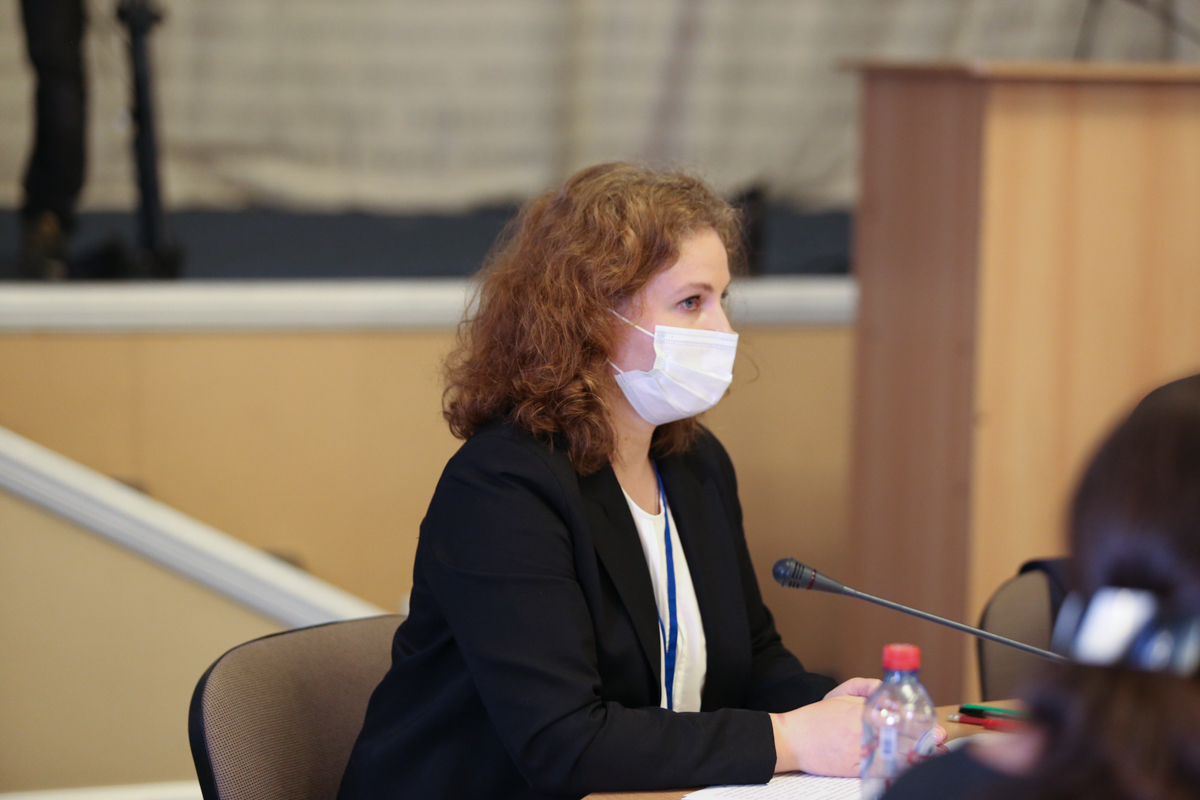Martens readings: the world needs norms that protect victims of war in a pandemic
St Petersburg University has hosted the traditional 14th Martens Readings – a conference devoted to the issues of international humanitarian law during war and armed conflict
This year the main topic of discussion was the pandemic. It has had an impact on the protection and humanitarian assistance of all victims of armed conflicts. With the pandemic still ongoing, this conference was conducted in a mixed mode with most of the participants and speakers being online.
Sergei Belov, Dean of the Faculty of Law at St Petersburg University, in his welcome address, noted that hosting Martens Readings was a long and very important tradition for the University: ‘We revere the memory of Fyodor Martens, and for us this remains one of the most significant academic events.’ According to the Dean, this year's topic was predetermined by the conditions the world has been living in since the beginning of last year.
The Martens Readings in International Humanitarian Law have been held at St Petersburg University since 2000. The conference is named after Fyodor Martens, an outstanding scholar and renowned diplomat, an international arbitrator and consultant of the second half of the 19th and early 20th century, Professor and Head of the International Law Department at St Petersburg University.
The experts called for a new approach to all legal spheres, including humanitarian law. Anatoly Kapustin, President of the Russian Association of International Law, reminded that this pandemic was not the first one that humanity had faced. During the Hundred Years' War plague forced a halt in hostilities for almost two years. Now, however, despite the rapid spread of the virus and the high death toll, military conflicts have not ceased. Hostilities continue in Iraq, Yemen, Syria, the Central African Republic and other countries. ‘The pandemic changes our relations towards humanitarianism, but it does not stop aggression completely,’ said Anatoly Kapustin.
What is more, aggression is taking new forms. More and more new instruments and practices of warfare, and weapons have been perfected. In order to reduce the disasters caused by war, parties to the conflict should rely on the so-called Martens clause. This clause was introduced by Fyodor Martens in the Preamble to the Convention respecting the Laws and Customs of War on Land of 1899. It states that the principles of humanitarianism and humanity must be followed, even in the absence of the necessary legal framework, when the relevant treaty has not yet been drawn up and signed. Vitaliy Ivanenko, Associate Professor at St Petersburg University and co-moderator of the conference, said that no international treaty, even the most exhaustive and advanced, can provide for an interpretation of all possible situations of aggression and brutality. Consequently, belligerents should always demonstrate a sense of reasonableness and humanitarianism. This has become especially evident with the appearance of new types of weapons and the use of information and telecommunications technology by states for military purposes, including cyber-diversions and cyberattacks on enemy facilities.
The online format has almost doubled the number of participants this year: more than 300 people from different parts of the country and abroad – from Brazil and the USA to South-East Asia – have joined the broadcast.
The International Committee of the Red Cross (ICRC) last year issued a report on its activities during the pandemic, entitled 'As if the war was not enough'. Indeed, the spread of COVID-19 has become a worldwide crisis. It has demonstrated that civilians living in territories controlled by non-governmental armed groups, people detained in conflict territories, and medical personnel were even more vulnerable than before. Helen Durham, Director of International Law and Policy at the ICRC, pointed out that the reasons behind this include: a lack of health care facilities; closed borders and resulting logistical problems; lack of access to personal protective equipment; shortage of specialists in infectious diseases; and lack of information on treatment protocols and vaccines.
Ikhtiyar Aslanov, Head of the Regional Delegation of the ICRC in the Russian Federation, Belarus and Moldova, noted that access to a vaccine is a crucial measure in overcoming the pandemic. All groups of the population need to be vaccinated, including, prisoners and prisoners of war. Prisons are a locus of infection as people are held there without protective equipment, often without essential medicines. There is no access to sanitary facilities and qualified health care personnel. Nor is there any social distancing or, worse still, any regular access to water, without which it is impossible to maintain good hygiene during the pandemic. The staff and volunteers from human rights, humanitarian and charitable organisations can at least partially help to alleviate this problem. However, these people together with medical personnel and humanitarian aid workers must be fully protected to be able to act effectively. The participants stressed that civilian casualties are the responsibility of all parties to the conflict, regardless of whether it was the war or the pandemic that caused their deaths.
The pandemic is changing our relationships to be more humane, but it cannot stop aggression altogether.
Anatoly Kapustin, President of the Russian Association of International Law
Experts raised the idea of a new international treaty on the application of international humanitarian law in times of pandemics, stressing that COVID-19 will certainly not be the last disease to take over the world.
In conclusion, the participants expressed the hope that the next Martens Readings will be held in St Petersburg in a face-to-face mode.



